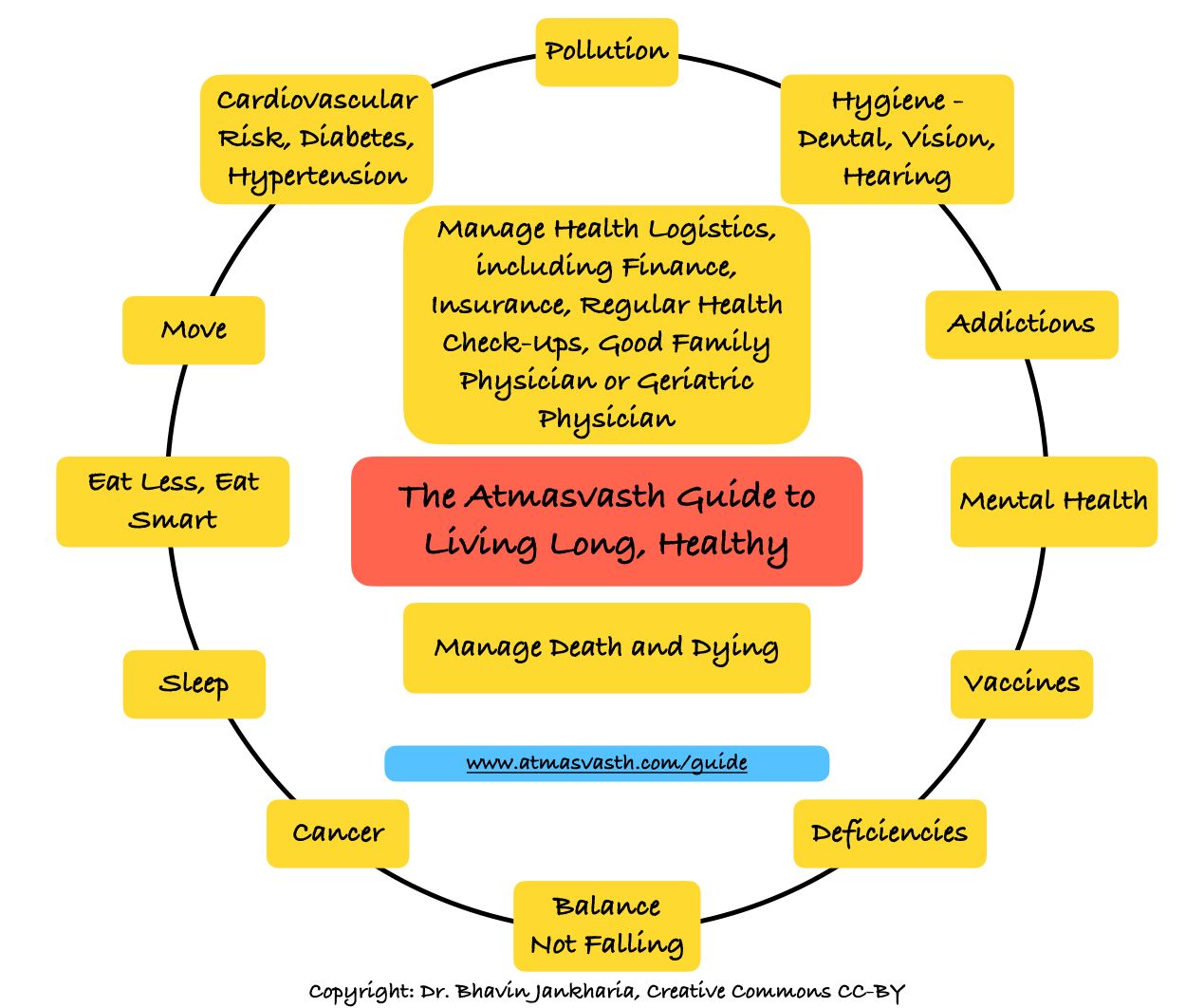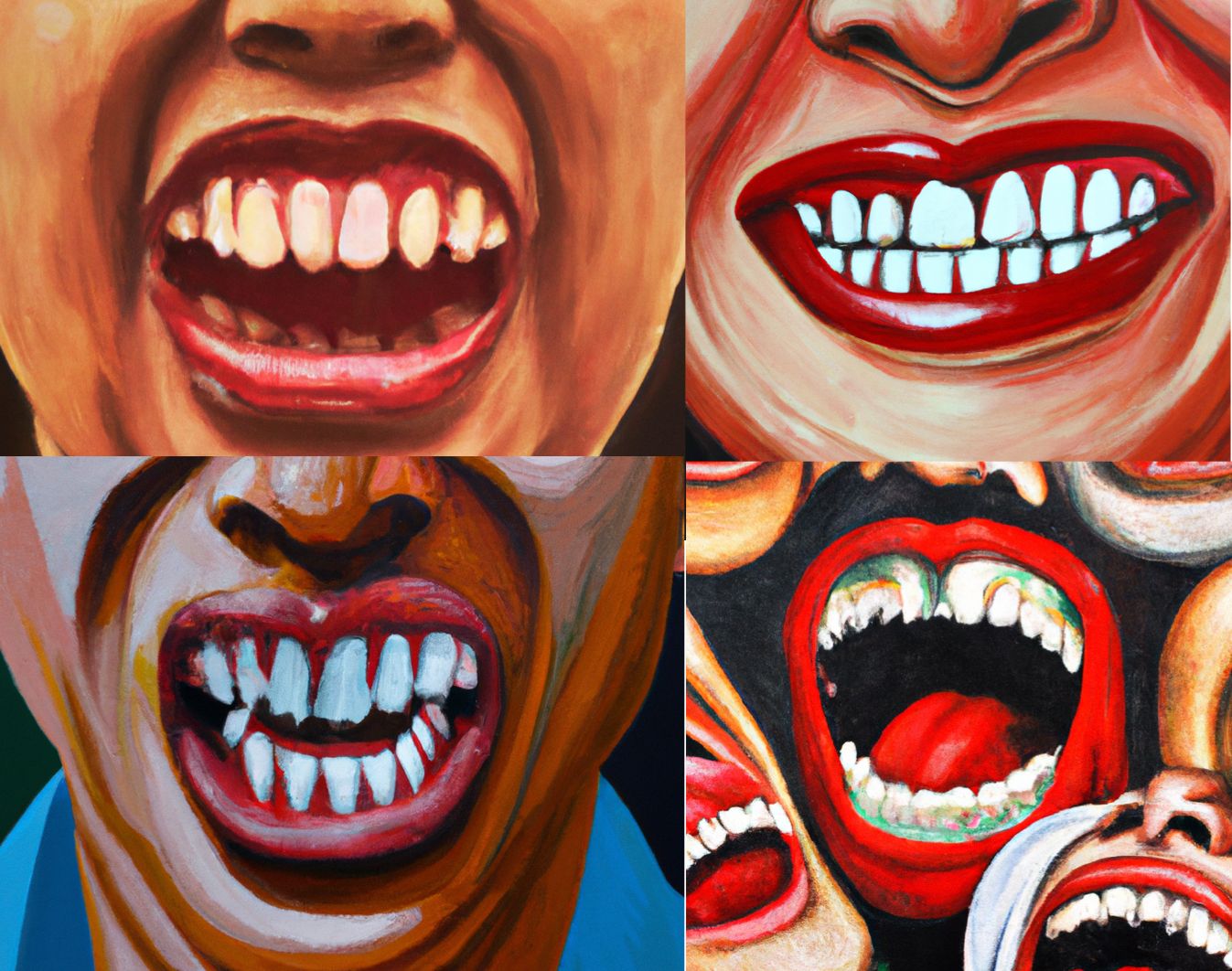Your Mouth is a Window to Your Health
Oral hygiene is an important part of our atmasvasth quest to live long, healthy

The Atmasvasth Guide

Audio
Text
In July 2021, I wrote about how bad gums and periodontal disease can increase the risk of high blood pressure.
The 2019 Global Burden of Diseases showed that three oral problems - edentulousness (loss of teeth), periodontitis (disease of the gums) and dental caries, are responsible for significant disability in the population and loss of working days [1]. A quarter of this is attributable to ageing. The Indian statistics are even more telling. A recent study based on the LASI cohort [2] showed that at least 77% of people above the age of 45 have at least one oral morbidity (tooth loss, tooth pain, periodontitis or caries), with those above the age of 60 having a three-fold increase in the incidence of oral disease compared to those between 45-59 years of age, while those above 75 years of age have a six-fold increase. Hardly anyone in India has dental insurance (3.16% of the Indian population) and most people do not visit dentists. A document from the Ministry of Family Health and Welfare from 2021 [3] mentions similar statistics…for e.g. the incidence of dental caries in those above the age of 65 is between 52 to 95%, depending on the population and geography being studied.

So why is oral health important? Just as we have physical frailty, “oral frailty” [4] is associated with decrease in oral function due to oral pathologies leading to deterioration of physical and mental function. Reduced oral health and hygiene lead to a bunch of issues ranging from pain, infections, poor nutritional intake, changes in communication and difficulties with swallowing and mastication. There is an association of poor oral health with high blood sugar, high blood pressure, other cardiovascular diseases, systemic inflammation, infection and the possibility of aspiration pneumonia and other respiratory tract problems.
In short, poor oral hygiene can have significant deleterious consequences and affect our ability to live long, healthy. The funny thing is that the vast majority of oral problems can be prevented and treated.
We are so focussed on the rest of our body that we often miss taking care of our mouths along with everything else. Prevention should start at a personal level. This involves acts of avoidance (sugary foods, tobacco in all forms and alcohol to the extent possible) and acts of commission (flossing and brushing using a flouride toothpaste and keeping the mouth clean). If there is dental pain or disease or bleeding or a foul smell, then you immediately need to see a dentist to identify the problem and to get it fixed. It is also a good idea to visit a dentist for an oral check-up at least once in 2 years, if not more frequently.
In our atmasvasth quest to live long, healthy, oral hygiene has to be given its due importance - poor oral health is associated with an increased risk of a host of diseases and eventually reduced healthspan and lifespan.
Footnotes
1. Patel J et al. Lancet Healthy Longev 2021;2:e521-527
2. Ghosal S et al. Clin Epidemiol Global Health 2022;18:101177
3. National Oral Health Policy. MoFHW, Feb 2021
4. Watanabe Y et al. Geriatr Gerontol Int 2020;20:526-538
Atmasvasth Newsletter
Join the newsletter to receive the latest updates in your inbox.



